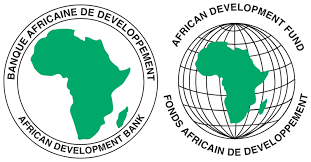AfDB Concludes High-Level Mission to Ghana, Commits to Major Investments
The discussions focused on charting practical pathways to finance infrastructure, boost private sector productivity, support industrial parks, and digitize the economy.

- Country:
- Ivory Coast
A high-powered delegation from the African Development Bank Group (AfDB) has concluded a week-long mission to Ghana, marking the first major engagement with the new administration led by President John Dramani Mahama. The visit, led by Solomon Quaynor, AfDB Vice President for Private Sector, Infrastructure, and Industrialization, focused on aligning the Bank’s development priorities with Ghana’s ambitious economic transformation agenda.
The mission underscored the AfDB’s commitment to partnering with Ghana’s government, public agencies, and private sector to unlock long-term growth opportunities and enhance livelihoods through strategic investments in infrastructure, industry, and digital transformation.
Strategic Consultations Across Government and Industry
During the mission, the AfDB delegation held consultations with key ministries and national institutions, including:
-
Ministry of Roads and Highways
-
Ministry of Communication, Digital Technology and Innovation
-
Bank of Ghana
-
Ghana Infrastructure Investment Fund (GIIF)
-
Ghana Ports and Harbors Authority
-
Volta River Authority
-
National Pensions Regulatory Authority
-
National Insurance Commission
-
Securities Exchange Commission
-
Ghana Export-Import Bank
-
Ghana Stock Exchange
-
Private sector leaders and fund managers
The discussions focused on charting practical pathways to finance infrastructure, boost private sector productivity, support industrial parks, and digitize the economy.
Roundtable on Long-Term Local Currency Financing
One of the highlights of the mission was a landmark one-day roundtable titled "Unlocking Long-term Local Currency Finance for Infrastructure Development in Ghana." Jointly organized with GIIF, Stanbic Bank, InfraCredit, PetraTrust, and the Private Infrastructure Development Group (PIDG), the event laid the groundwork for future domestic capital mobilization strategies.
The event brought together policymakers, investors, and development financiers to explore models that could help leverage Ghana’s GHS 5.2 billion (USD equivalent) in pension assets to finance large-scale infrastructure, industrial development, and affordable housing projects.
Five Core Collaboration Areas Identified
The Bank identified five strategic pillars for continued engagement and partnership with Ghana:
1. Mobilizing Domestic Capital for Infrastructure
Drawing from successful models like InfraCredit in Nigeria and Dhamana in Kenya, AfDB will work with Ghana to establish a credit enhancement and de-risking facility that can unlock long-term local capital—particularly from pension funds—for national infrastructure development.
2. Supporting the 24-Hour Economy Initiative
The AfDB expressed strong support for Ghana’s ambitious 24-Hour Economy initiative, aimed at expanding production cycles and boosting employment. The Bank will provide project preparation support, expertise in industrial parks development, and financing solutions targeting:
-
Textiles and garment production
-
Agro-processing
-
Light manufacturing
-
Inland waterway infrastructure along the Volta Economic Corridor
3. Advancing Transport Infrastructure
The Bank committed to backing Ghana’s ‘Big Push’ infrastructure agenda, which includes strategic transport projects to improve connectivity and logistics. Collaborations will be pursued with the Ministries of Roads and Highways, Finance (PPP Unit), and Ports and Harbors.
4. Strengthening the Digital Economy
To drive digital transformation, AfDB will assist with policy and legislative reviews covering:
-
Data governance and harmonization
-
Cybersecurity frameworks
-
Digital identity and connectivity expansion
This partnership aims to create a strong digital infrastructure base for innovation, fintech, and e-governance.
5. Unlocking Private Sector Investments
The mission also revealed high-potential investment opportunities in agriculture, logistics, agro-processing, and energy, reaffirming the Bank’s focus on private sector-led growth as key to sustainable development.
A Shared Vision for Transformation
Speaking at the end of the mission, Solomon Quaynor praised the Ghanaian government’s vision and readiness for transformation:
“The enthusiasm, vision, and commitment we have witnessed this week from Ghana’s leadership and stakeholders give us great confidence in the transformational impact we can achieve together.”
He emphasized the alignment between Ghana’s national development priorities and the AfDB’s strategic goals, calling it an “unprecedented opportunity for impactful collaboration.”
Strong Follow-Up and Institutional Support
The AfDB mission concluded with a firm commitment to pursue all identified collaboration areas through:
-
Technical support missions
-
Structured public-private dialogue
-
Knowledge exchange platforms
-
Financing and blended capital initiatives
Key members of the AfDB team included:
-
Eyerusalem Fasika, Country Manager for Ghana
-
Mike Salawou, Director for Infrastructure and Urban Development
-
Ousmane Fall, Director for Private Sector and Industrial & Trade Development
-
Akane Zoukpo Sanankoua, Manager, Capital Markets Development
-
Aude Apetey-Kacou, Regional NSO Lead for West Africa
-
Dennis Ansah, Regional NSO Lead, Nigeria
-
Dovi Amouzou, Advisor to the Vice President
This mission solidifies the AfDB’s role as a long-term development partner committed to accelerating inclusive, sustainable, and private sector-driven economic growth in Ghana.
- READ MORE ON:
- African Development Bank
- Ghana
- infrastructure
- 24-hour economy
- local currency finance
- digital transformation
- public-private partnership
- President John Mahama
- Solomon Quaynor
- economic development
- AfDB mission
- capital mobilization
- Ghana infrastructure
- pension funds investment
- Volta Economic Corridor










